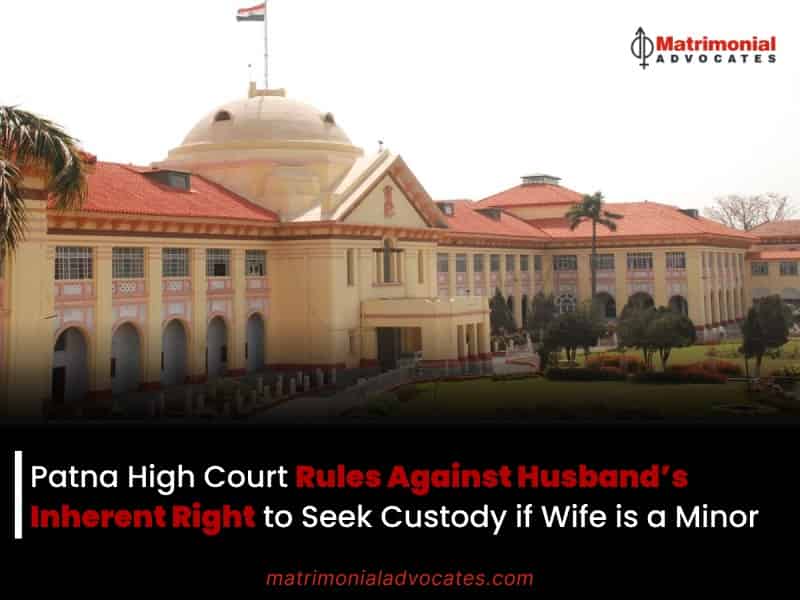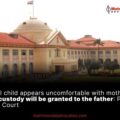
A division bench of Justices PB Bajanthri and Ramesh Chand Malviya dismissed a plea filed by a man who sought custody of his wife aged less than 17 years.
The Patna High Court has recently affirmed that a husband lacks any inherent right to pursue custody of his wife if she is a minor. A plea submitted by a man seeking custody of his wife, who is under 17 years old, was rejected by a division bench comprising Justices PB Bajanthri and Ramesh Chand Malviya.
“This court is of considered view that there is no inherent right vested in the husband to claim custody of minor girl by filing writ of habeas corpus on illegal detention,” the Court held.
Additionally, the court stipulated that if a girl is a minor and articulates concerns about her safety while in the custody of her parents, the court may intervene and utilize its jurisdiction to place her in a suitable facility designed to provide refuge for women until she reaches adulthood.
“That a girl child below the age of 18 years, who is sought to be married is a child in need of care and protection and is required to be produced before the Child Welfare Committee under the provisions of the Juvenile Justice (Care and Protection of Children) Act, 2015 so that she can be cared for, protected and rehabilitated in a society and that under no circumstances can a child below 18 years of age gives consent express or implied for sexual intercourse,” the bench further observed.
The petitioner entered into marriage with a 14-year-old girl who later gave birth to a child. Subsequently, the girl was directed to reside in a women’s shelter home following legal action initiated by her parents against the petitioner.
Despite this, the girl declined to accompany her parents and insisted on residing with her husband, the petitioner. The petitioner contended that since the girl had willingly married him, he should be granted custody.
The State countered, emphasizing that the girl was not yet 17 years old. It was argued that her marriage, undertaken while she was a minor, rendered her consent invalid, constituting a case of child marriage.
The Court acknowledged the provisions outlined in the Hindu Marriage Act and the Prohibition of Child Marriage Act, which prescribe penalties for child marriages as they are considered offenses under the law.
“The argument of the petitioner that the marriage was performed with consent of the minor girl would pale into insignificance in view of the fact that the child marriage itself is an offence although it may not be illegal under the Hindu Marriage Act but certainly it is a voidable marriage under the Prohibition of Child Marriage Act,” the bench said.
It emphasized that the well-being of the girl is always the primary consideration.
“In several cases, where the girl does not marry with her choice then there is an apprehension that she may be forced to get married to any other person by her parents, steps which are required to be taken in that eventuality is to protect the girl by keeping her in a safe custody rather than permitting her to marry before she attains the age of majority,” the Court underscored.
The Court also highlighted the consequences of child marriage on a girl.
“The consequences are much more devastating. It exposes the girl to increased health problems and violence, denies them access to social networks and support systems and perpetuates a cycle of poverty and gender inequality. The element of consent is always subservient to overall welfare of a child,” the judgment stated.
Additionally, the Court emphasized that the health risks associated with child marriage cannot be disregarded.
“Fixing the age of marriage for females as 18 years by the Legislature is not without any reason as it is also based upon the evil effects of a child marriage in terms of medical, social, psychological, economic and other like factors,” the bench underscored.
Based on these remarks, the Court rejected the husband’s petition.





